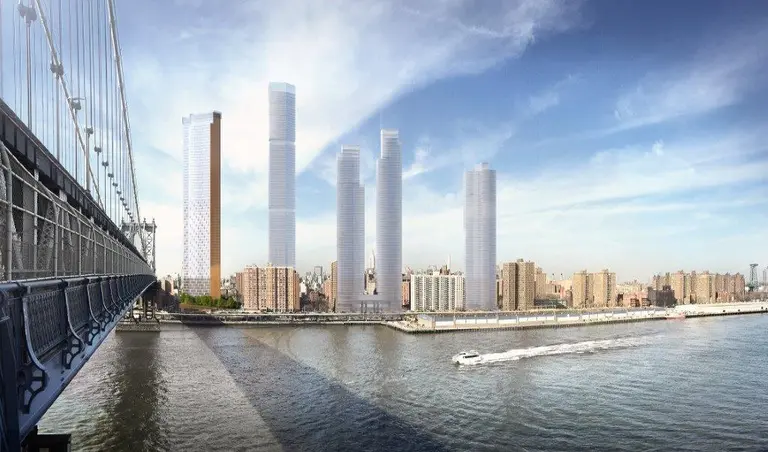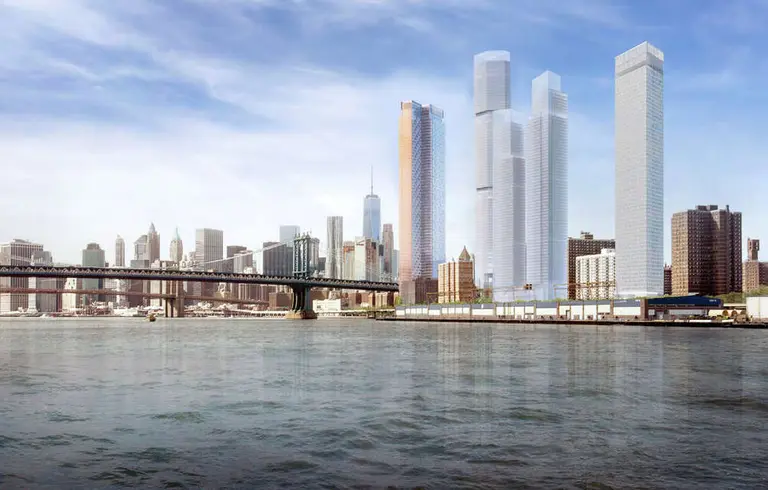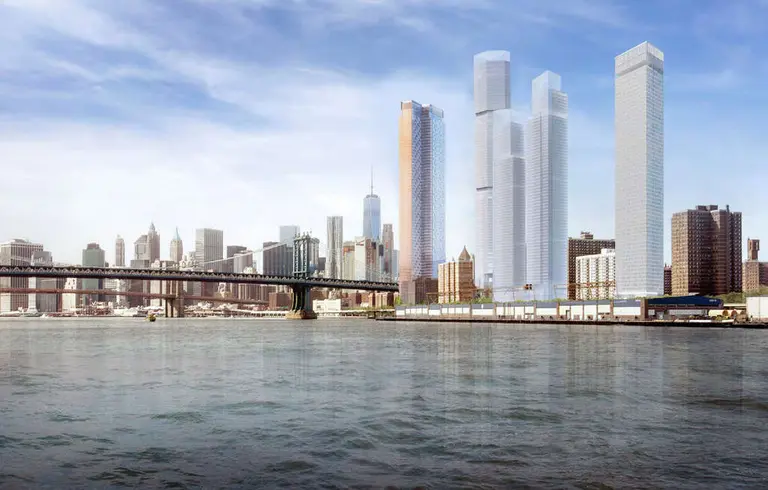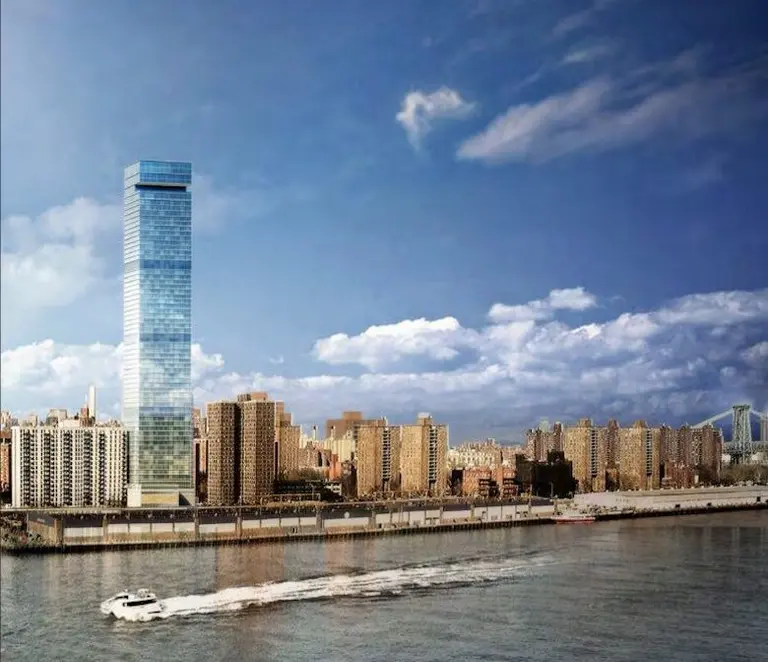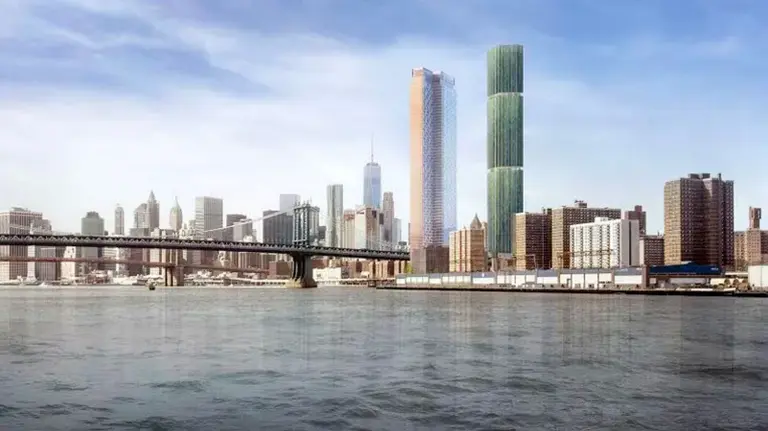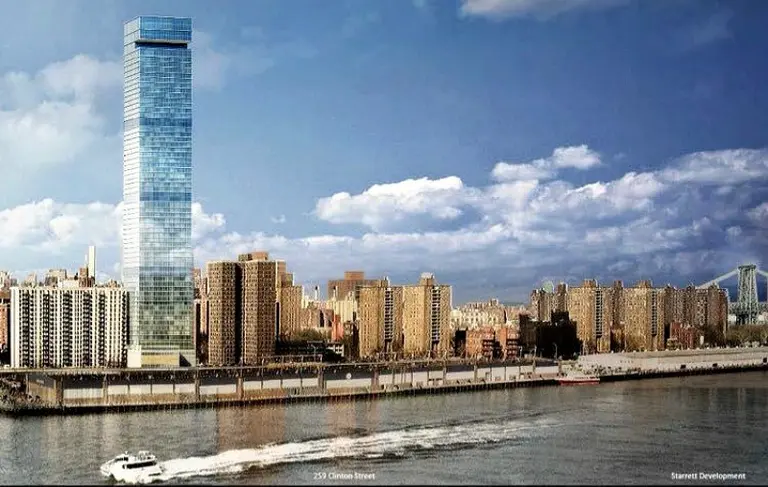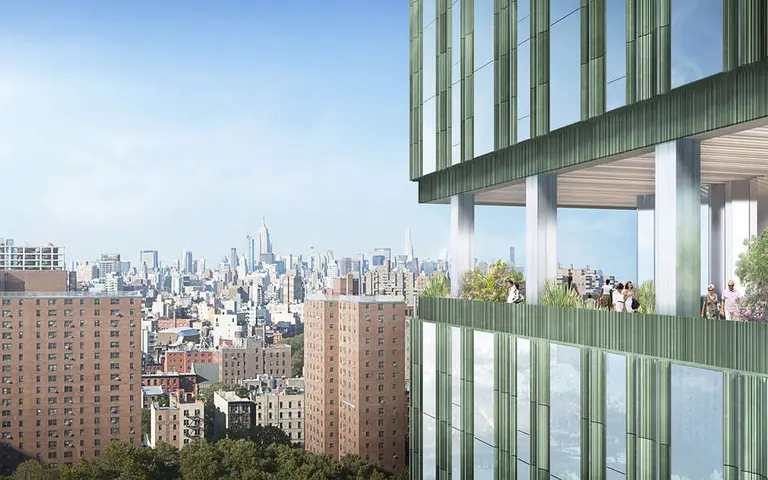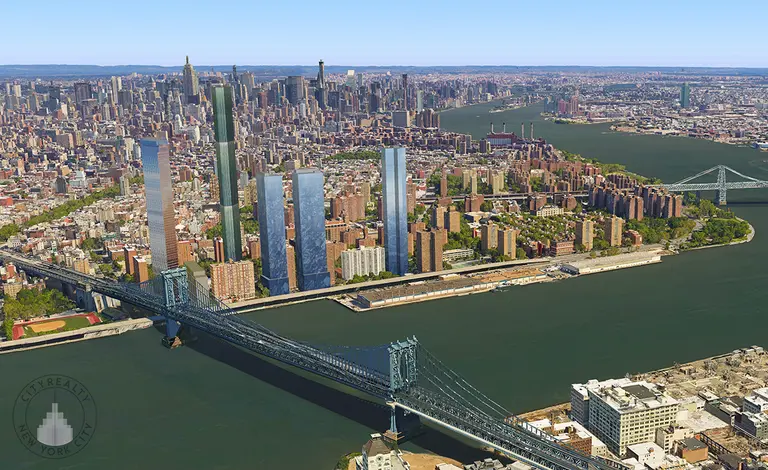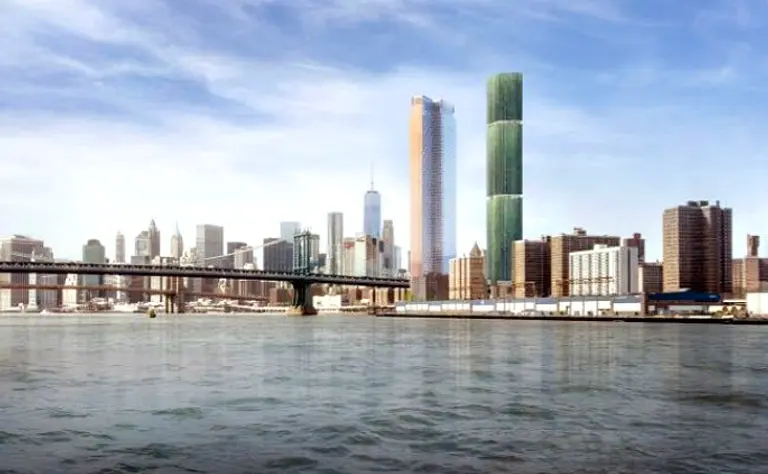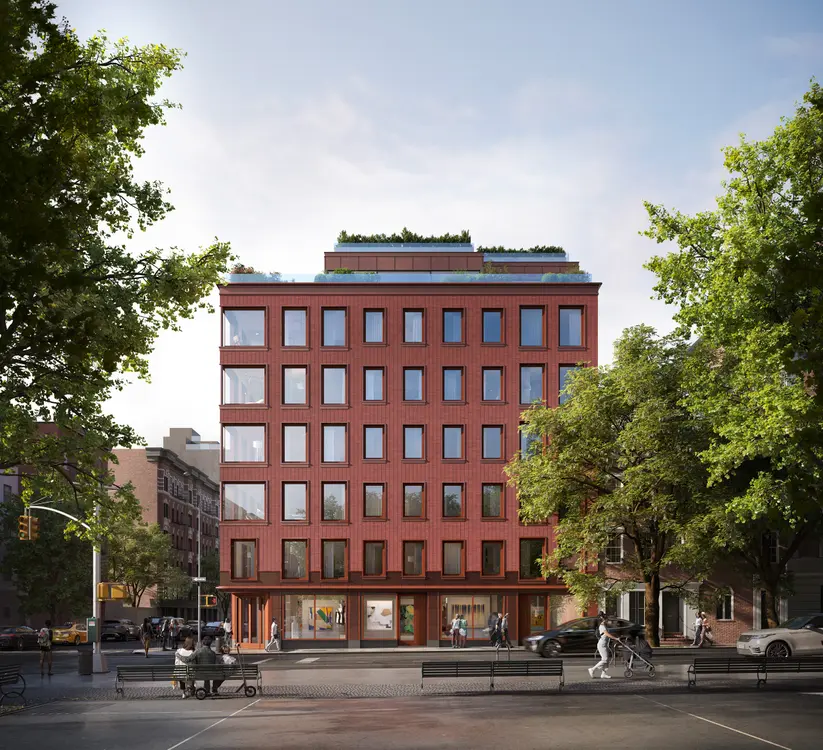Judge upholds decision to halt Two Bridges megatowers from rising
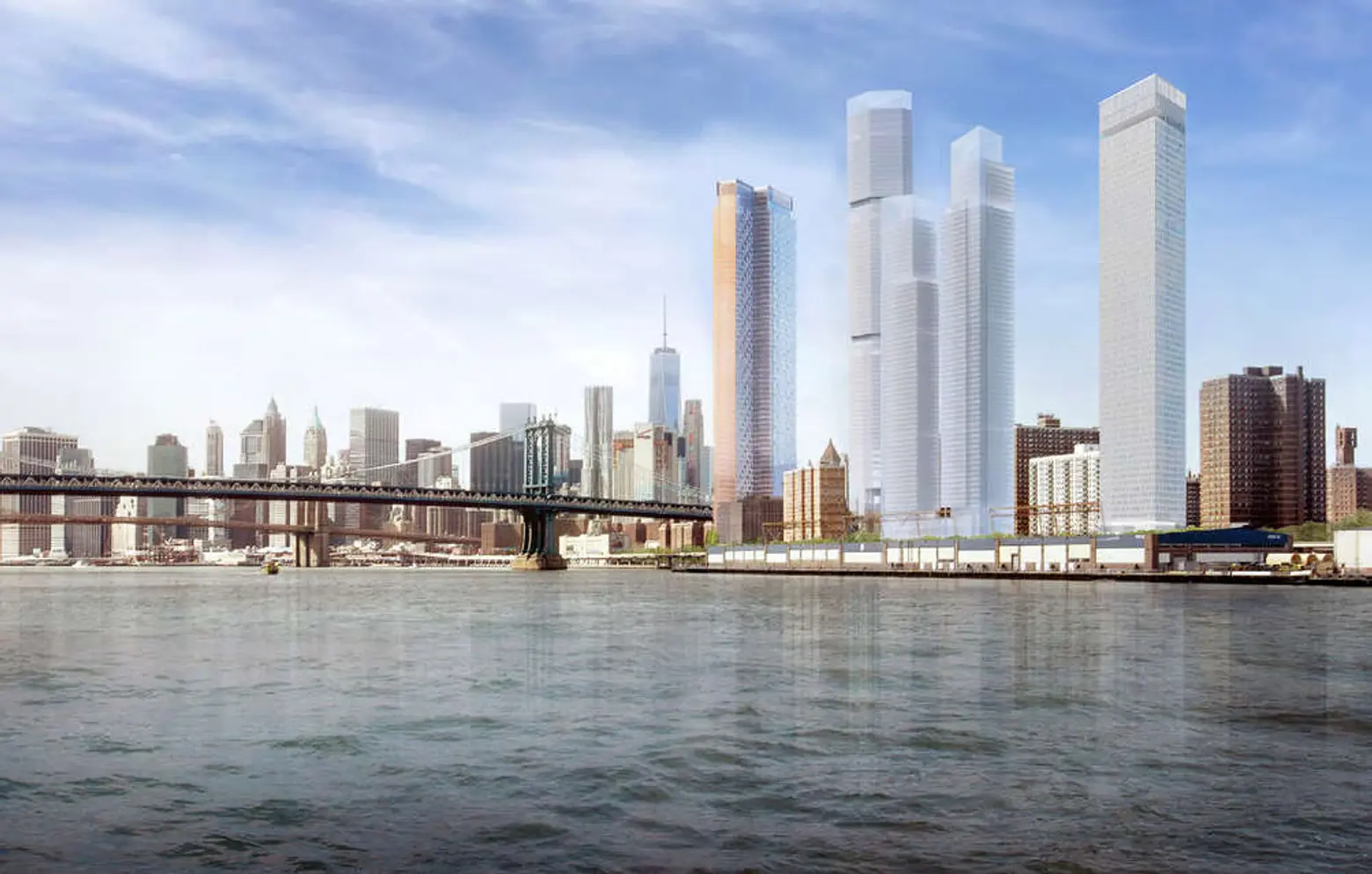
Rendering: Handel Architects.
State Supreme Court Judge Arthur Engoron upheld an August 2019 ruling that four towers planned for the Lower East Side Two Bridges development cannot move forward. The judge’s decision invalidates the City Planning Commission’s 2018 approval of the towers on the grounds that City Council authority regarding the land-use review process was illegally bypassed and that the controversial skyscrapers must go through the city’s full application process. The ruling prevents the Department of Buildings from issuing permits until the multi-billion dollar project has the proper approvals. The decision represents a rare victory for those opposed to the skyscrapers, including the City Council and Manhattan Borough President Gale Brewer and several Lower East Side and Chinatown community groups.
As 6sqft previously reported, in January the City Council and Manhattan Borough President Gale Brewer sued the city and the project’s developers for circumventing the land use review process and the final City Council approval that it requires. Local community groups filed a lawsuit stating that the development should not proceed, ULURP or not, and that one of the towers violates a 32-year-old deed restriction that ensures housing for low-income residents with disabilities and the elderly.
An additional community coalition consisting of Tenants United Fighting for the Lower East Side, Organizing Asian Communities, Good Old Lower East Side, Land’s End One Tenants Association and LaGuardia Houses Tenants’ Association filed a suit against the project as well.
The towers in question include a 1,008-foot rental tower at 247 Cherry Street by JDS Development Group, a 798-foot dual-tower project at 260 South Street by L+M Development Partners and CIM Group, and a 730-foot building at 259 Clinton Street by Starrett Corporation. The planned towers would bring nearly 3,000 units of housing (694 will be affordable, the rest luxurty) to a two-block area mostly surrounded by low-scale subsidized housing–and significant impacts to the Chinatown and Lower East Side neighborhoods.
A decision in June by the same judge hinted at the outcome when he ruled to extend a temporary halt on the multi-billion dollar project after hearing testimony on several lawsuits, saying he believed there was merit to the arguments against the development. “These are huge towers,” he said. “I’ve lived in the city my whole life. You can’t just do this because the zoning allows it. I just can’t believe this is the case.” Yesterday he added, “[I]t strains common sense and credulity to characterize anything that would add approximately 2.5 million square feet of new space, four new skyscrapers, and 2,775 new dwelling units as ‘minor modifications.'”
At the time, lawyers for the city and developers said that “the size of the buildings do not matter here. Although the height is significant, it does not matter because that is what the zoning allowed here in the LSRD.” Justice Engoron responded by calling the size of the proposed towers “an 800-pound gorilla.”
Mayor Bill de Blasio has been a proponent of the towers because they would add a significant number of affordable housing units to the city–nearly 700 apartments would be available at below-market rates. After the first decision in August, a spokesman for the city’s Law Department said in a statement: “We are disappointed by the court’s ruling impacting a project expected to add hundreds of affordable housing units and improve transit infrastructure for the community. We are considering the city’s legal options.”
James Yolles, a spokesman for the project’s developers including L + M Development and CIM Group, said in a statement obtained by the Daily News, “These projects were lawfully approved, met all legal requirements and are in compliance with zoning that’s been in place for more than 30 years. They will deliver one of the largest single infusions of new affordable housing to Manhattan in decades, at a time when the creation of all types of housing is critical to slowing rent growth citywide.”
The developers plan to appeal the decision in “the near future,” according to Bowery Boogie.
Editor’s Note: This story was originally published on August 2, 2019, and has been updated with new information.
RELATED:
